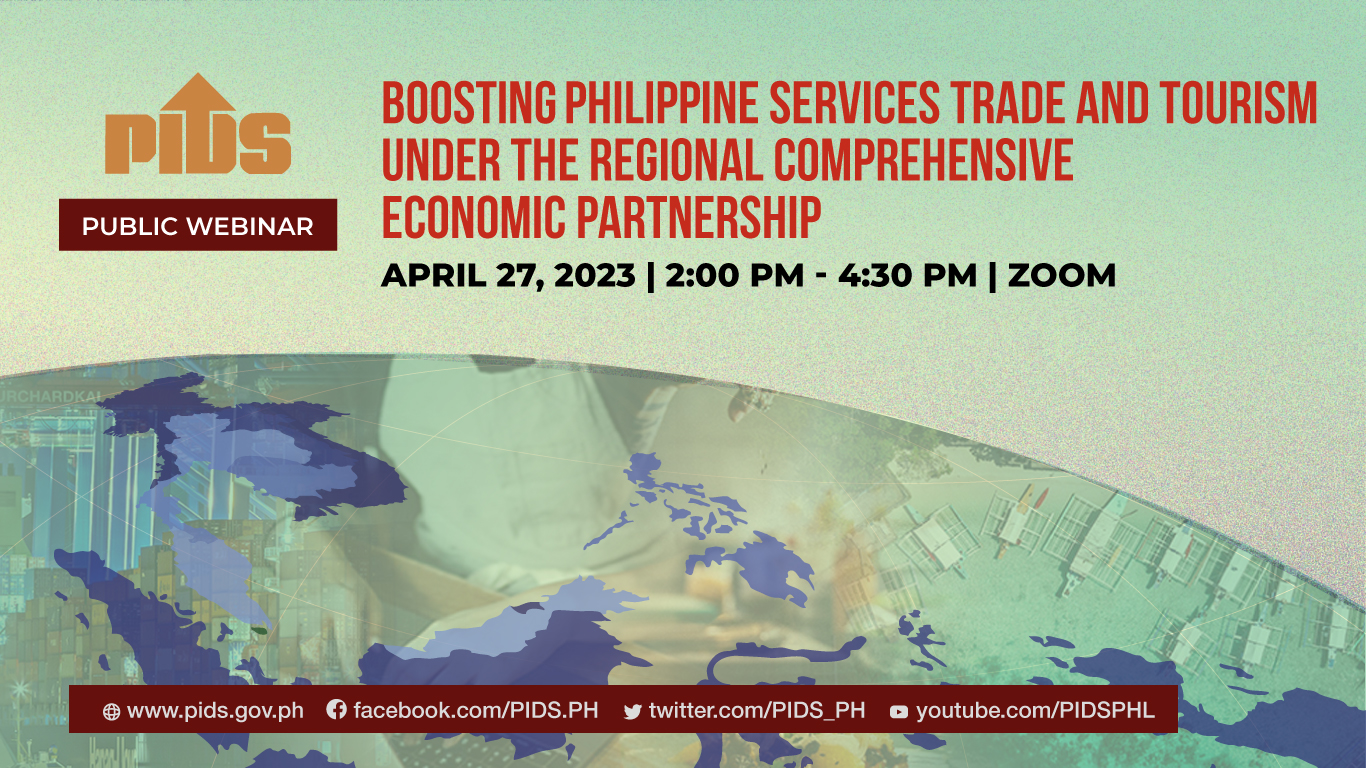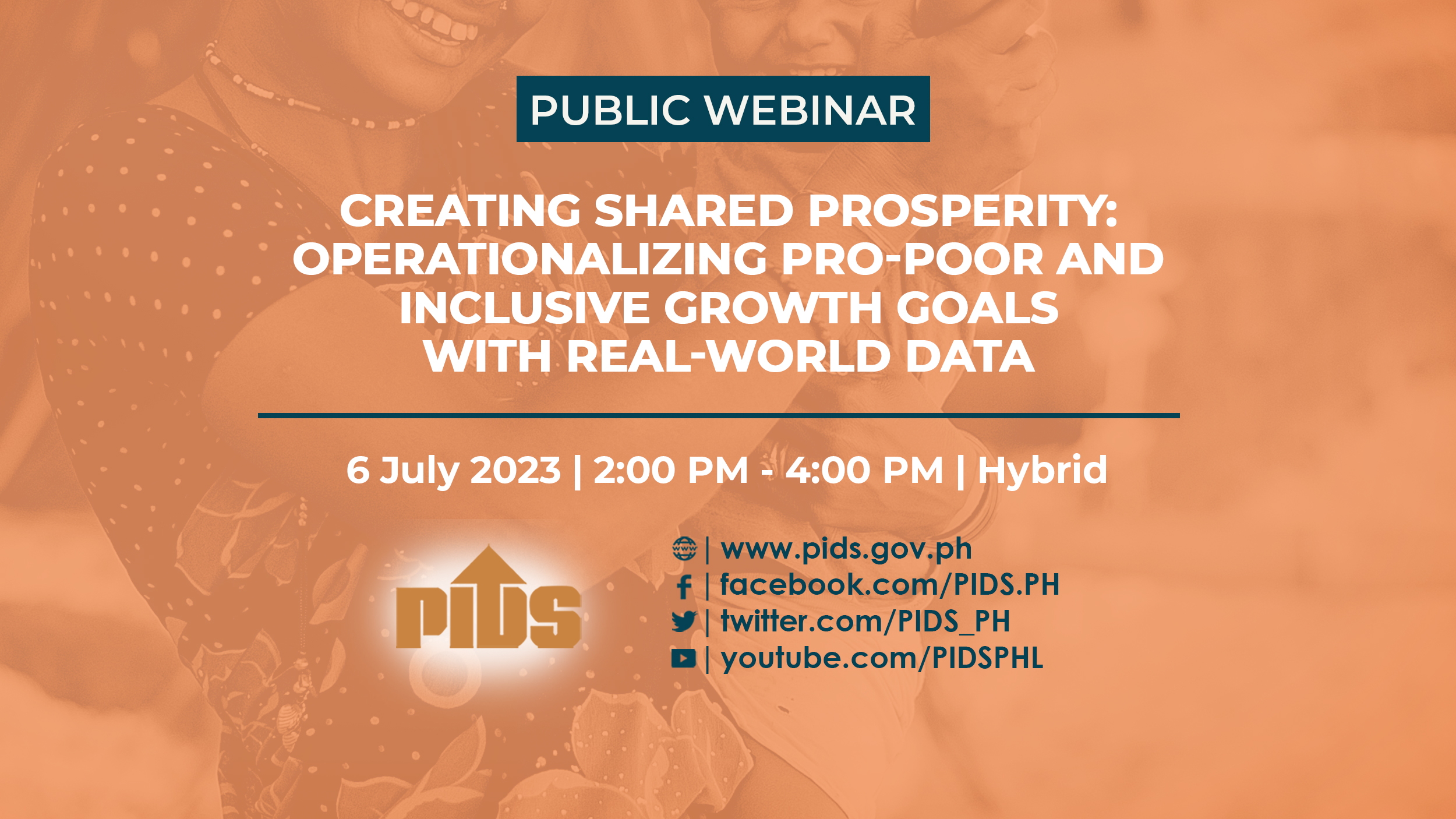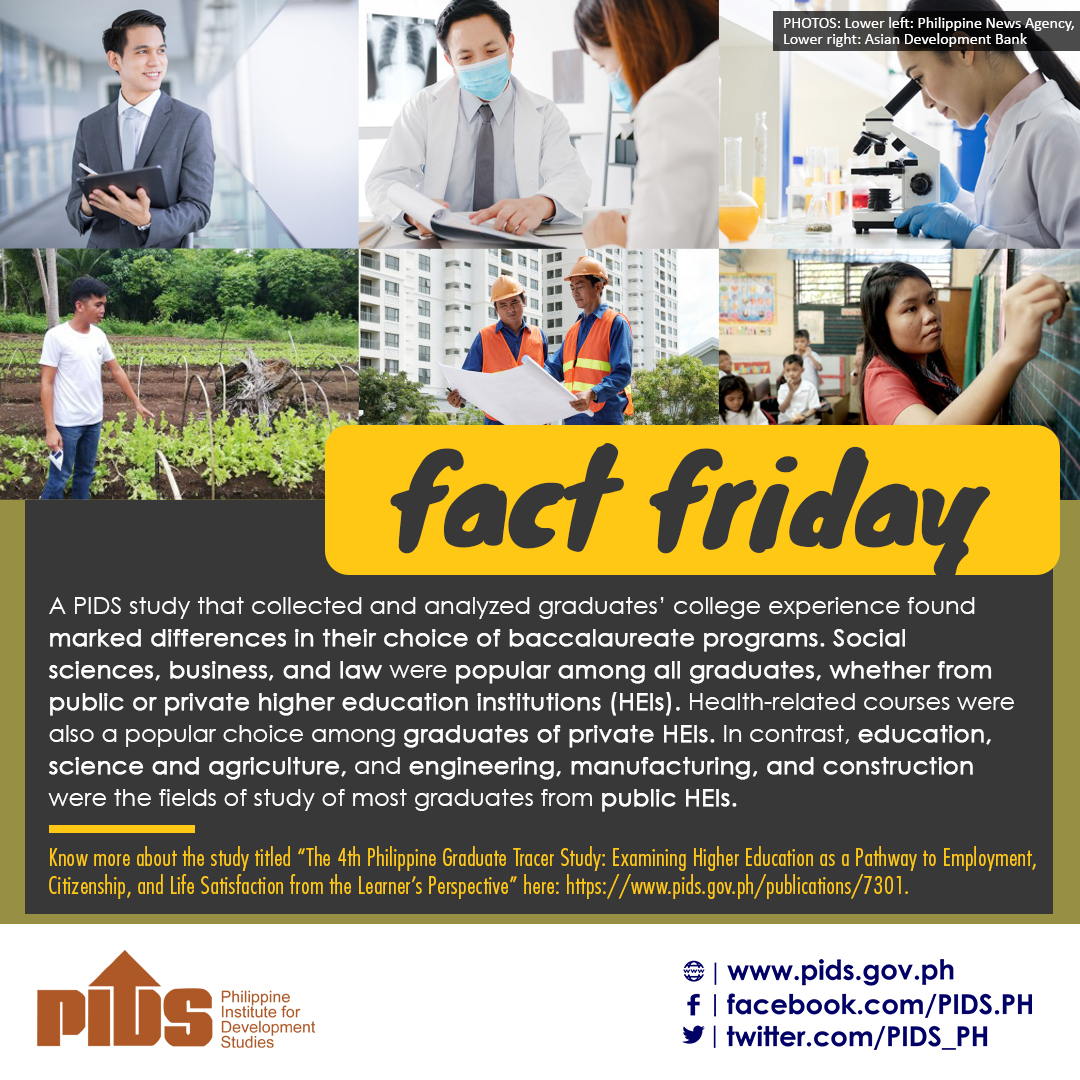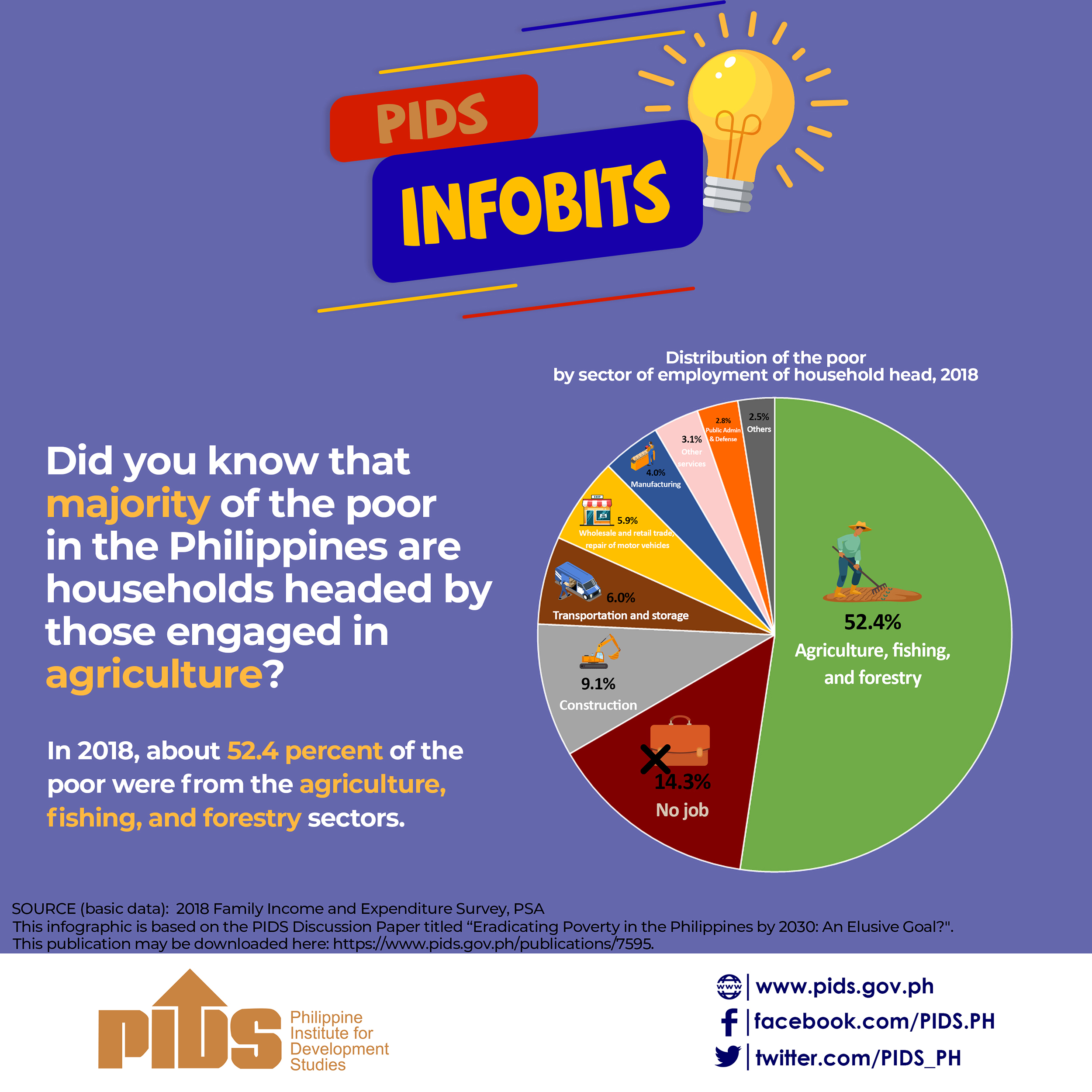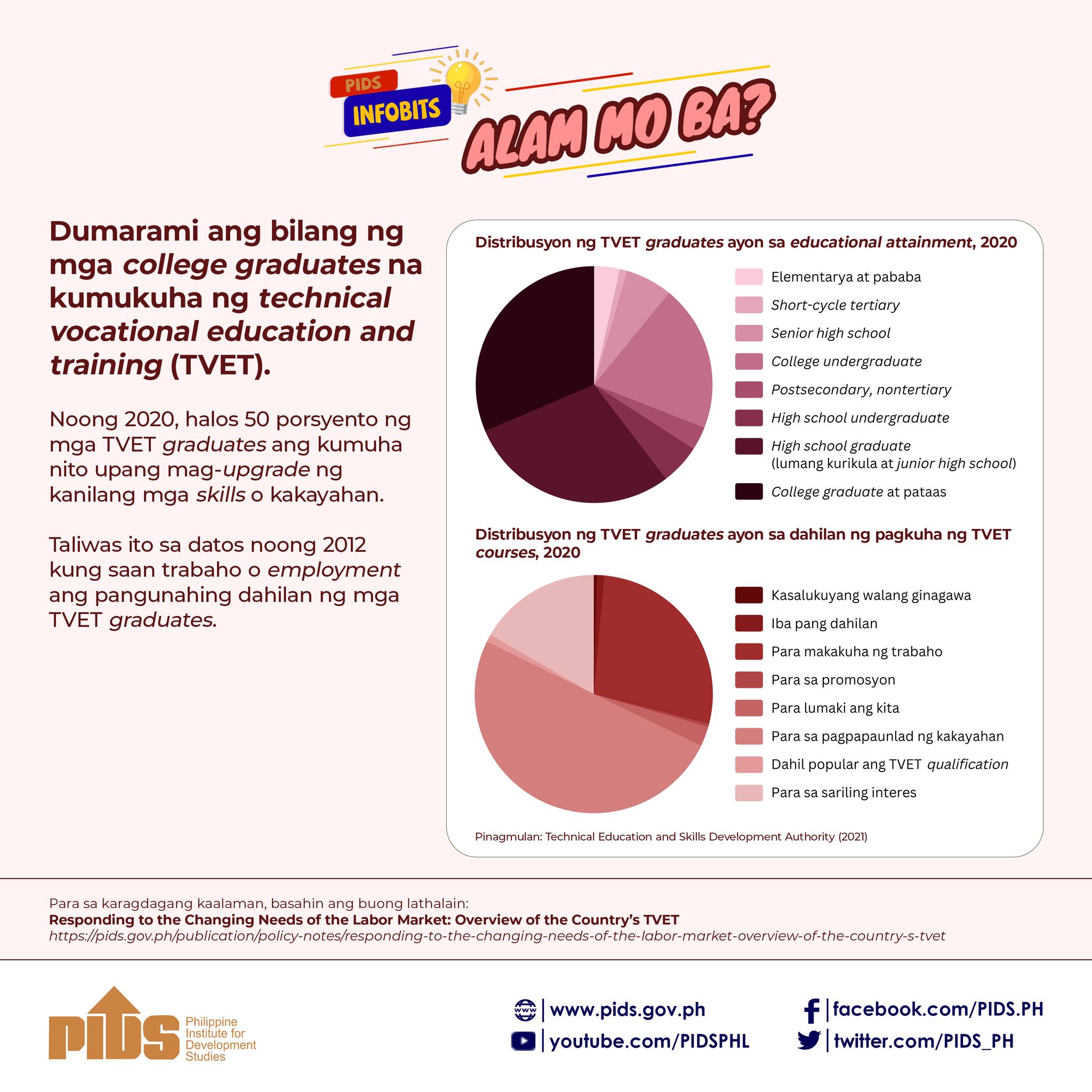Willing but poor students will suffer the most if bills providing subsidies for all Filipino students are followed instead of existing laws which exclusively target indigent families, according to a new study by state think-tank Philippine Institute for Development Studies (PIDS).
The study "Who benefits and loses from an untargeted tuition subsidy for students in SUCs?" dissected bills proposing free education to all Filipino students including House BIll 5905 and Senate Bill 1304, a compression of SB 158, SB 177, SB 198, and SB 962.
Under SB 1304, all Filipino students regardless of their economic status qualify for full tuition subsidies if they meet the requirements of State Universities and Colleges (SUCs) where they wish to pursue their undergraduate degrees.
Section 4 states that all SUCs must create mechanisms to allow financially-capable students to “opt out” of the subsidy or “make a donation to the school.”
However, authors Aniceto Orbera Jr. and Vicente Paqueo explained that a "highly subsidized college education tends to encourage students” — even those who are capable of paying or who are not considering SUC education if they must pay for it — “to overuse” limited resources for tertiary education.
Offering subsidies that do not specifically target poor students interested in pursuing a tertiary education “may also exacerbate income inequalities” and "will likely crowd out resources" for "other high-priority propoor development programs".
Indigent students may also face fiercer competition for limited slots in SUCs as "they will lose out to students with better backgrounds who are usually from richer households."
A mass exodus to SUCs will also "have implications on the quality of public education, particularly if the increase in enrollment does not translate to better quality of public education."
"It will be a double whammy if government fails to respond suitably to the increase in enrollment in SUCs as a result of the subsidy," Orbera and Paqueo wrote.
"Government is not known to act quickly unlike the private sector. Raising taxes is not without costs nor easy to pass in Congress. Bureaucratic red tape also prevents flexibility in the public sector."
SB 1304 and similar ideas of “untargeted subsidy", Orbera and Paqueo added, is “worrisome” as it "delegitimizes the value of targeting, thereby neglecting the legitimate needs of the poor."
"There is a need to recover some of the cost of providing public services and to be selective and efficient in the use of subsidies," they wrote.
Fully fund existing law instead
A better alternative to such laws is to fully fund Republic Act 10687 or the Unified Student Financial Assistance System for Tertiary Education (UniFAST) Act of 2015.
UniFAST brings under one law all modes of Student Financial Assistance Programs (StuFAP), including Scholarships, Grants-in-Aid, and Student Loans; and prioritizes poor students in such programs.
"If the government wants to expand the access of poor but capable students to higher education, it only needs to allocate more funds to the grants-in-aid component of UniFAST," the study explained.
"If it wants to finance more bright students, it only needs to put more resources on the scholarship component. If it wants to expand access for those who are neither poor nor bright but are college ready, it only needs to expand the allocation for student loans."
UniFAST also allows students to choose from any public or private Higher Education Institutions (HEI), protects StuFAP from being used as political or partisan tools, and can fully finance a student's living needs.
To illustrate their point, they said an annual expenditure of P33 billion is needed to subsidize students who need P20,000 a year for their tuition.
Using the figure of 1.648 million students enrolled in SUCs in academic year 2015–16, they said only 197,828 poor students or 12 percent from the bottom 20 percent of households can be funded by this untargeted subsidy.
If the same amount is allocated to the UniFAST, it can "already fully fund almost three times as many students (549,522) from poor households" even with "P60,000 per student budgeted under" the existing Students' Grants-in-Aid Program for Poverty Alleviation (SGP-PA).
SGP-PA is designed to provide “full funding for college students belonging to Pantawid Pamilyang Pilipino Program (PPP) beneficiary families”, providing students complete tuition, living allowance, and instructional materials.
"Targeting the poor with full financing using the grants-in-aid program under the UniFAST law will clearly benefit more poor students than an untargeted general tuition subsidy for students of SUCs," they wrote.
UniFASTs Implementing Rules and Regulations (IRR) was signed by Commission on Higher Education (CHED) Chair Patricia B. Licuanan on July 1, 2016. —JST, GMA New
GOV'T THINK TANK SAYS: Poor students to suffer under 'untargeted' free college tuition proposals
GMA News







